WATCH ABOVE: Toronto beekeeper Shawn Caza discusses what’s involved with urban beekeeping.

TORONTO – Along with backyard chickens, home beekeeping is a growing trend in Canada. According to the Canadian Honey Council, 20 per cent of the approximately 7,000 beekeepers across the country are hobbyists. That number is quickly climbing as more people are concerned with the decline in bee populations along with the desire to cultivate their own fresh honey.
Shawn Caza, who keeps hives on the grounds of Toronto’s Fort York with a colony of about 50,000 bees, says he got into beekeeping over a general interest in food.
READ MORE: What you need to know about backyard chickens
Caza says that since he got into it in 2008 he has seen an increase in people interested in beekeeping.
“People are engaged in the topic and wanting to get involved. The Toronto community of beekeepers seems to be growing and expanding,” he says.
The legalities around urban beekeeping
The Canadian Honey Council says the legalities of urban beekeeping are a “mish mash of rules and regulations that varies across the country.”
In Ontario you can keep bees as long as the hives are not within 30 metres of a residence. There also has to be proper signage notifying people there are bees on the premises. Hives also need to be registered with the province.
Caza says finding a location in the city that fits the 30 metre rule was the toughest part for him. He got the space at Fort York when he learned they were looking for bees to help pollinate the community garden.
“There’s nothing specific about backyards, it applies to all beekeepers,” Caza says about the rules in Ontario. “The main thing we often don’t fit into is the 30-metre rule.”
Vancouver has rules in place surrounding how many hives you can keep depending on the size of your property. Hives must be at least 25 feet away from the neighbouring property line and at least eight feet above ground level. The entrance to the beehive must also face away from the neighbouring property and be situated behind a solid fence or hedge that is at least six-feet high. Hives also need to be registered with the province of B.C.
Edmonton passed a bylaw in April allowing urban beekeeping. Calgary has no rules in place as long as the bees are not an issue with neighbours. Like B.C. and Ontario, all hives in Alberta must be registered with the province.

Get daily National news
In Saskatoon, bees are allowed as long as they do not show “defensive behaviour,” while Winnipeg and Halifax only allow beekeeping on agricultural land. Montreal has no rules in place.
Benefits of bees
A colony of healthy bees can produce upwards of 100 pounds of honey per year, but Caza warns you might not get any honey at all when you’re just getting started.
“That’s the first hurdle, getting an established hive,” he says. “You need to have good forage around to keep them healthy.”
Besides honey, bees are important in the pollination of fruits and vegetables. Well pollinated crops produce more fruit and vegetables. The value of the honeybees pollinating crops is estimated at about $2 billion annually, according to the Canadian Honey Council.
Businesses like Fairmont Hotels & Resorts are also getting into urban beekeeping by placing honeybee hives on the roofs of their luxury hotels. Fairmont’s Royal York Hotel in downtown Toronto and the Fairmont Waterfront hotel in Vancouver both house around 50,000 bees. The hotels use the honey they produce in their bars and restaurants.
Working with Burt’s Bees, Sustainable. TO Building + Architecture and Pollinator Partnership Canada, Fairmont also has a “bee hotel” program in place that provides “solitary bees with a place to rest their wings.”
READ MORE: Bee hotels a busy business for Fairmont
“These structures provide much needed urban habitat for the solitary bees, also known as pollinator bees that pollinate over 80 per cent of flowering plants,” it states on its website.
Fairmont currently has 20 bee hotels in place across Canada with plans to expand globally.
The Portlands Energy Centre in Toronto is home to six large colonies and earlier this month Toronto’s Pearson Airport launched YYbeeZ — a program that houses about 60,000 honeybees on property surrounding the airport.
Last summer, SAIT Polytechnic in Calgary introduced four hives with about 100,000 honeybees on the rooftop of one of its buildings. Hospitality and Tourism students get to help harvest the honey, which they sell at the campus marketplace.
“If we can expose our students to all this before they get into the industry, my feeling is that they are going to be more connected to the food, to the process and to the ingredients,” Chef Instructor Andrew Hewson said at the time.
READ MORE: 16×9 investigation into the use of a group of pesticides called neonicotinoids
Caza says Fort York has been very supportive.
“It’s pretty amazing to tell someone you’re going to bring 50,000 bees to their place and they say; ‘sure, come on in!’,” he says.
Fort York also has its own bee hotels for wild bees in the area.
Caza says because you don’t get the heavy industrial use of pesticides, the city is considered an oasis for bees.
“In general around the city they don’t seem to be having the problems you would associate with pesticide poisoning,” he says.
Getting started
For those interested in urban beekeeping, Caza recommends getting a mentor and testing it out for a couple of years first.
“Get a sense of how they behave, what you need to do, what’s involved and what a strong colony in August is going to look like if you have that next to your backyard door,” he said.
Beekeeping is not cheap either. The cost of the hives and equipment to manage the bees and honey can run upwards of $500.
“The hive equipment is about $250 or so. Your suit, smoker, veil, gloves, hive tools could easily be another $150 to $200,” Caza said.
READ MORE: Despite pesticide concerns, beekeepers and colonies on the rise
On top of the equipment, a queen bee and starter colony is required. These run anywhere from $150 to $200.
Someone getting into beekeeping should also make sure they are not allergic to bees because no matter how safe a person is, they will most likely get stung a few times working around them.
“There’s no question people are allergic and a bee sting can kill someone, but wasps are all around us and bumblebees are part of life,” Halifax beekeeper Jeff Wheaton told The Chronicle Herald in 2013.
Wheaton recommends beekeepers keep an EpiPen nearby in case someone has an allergic reaction.
Speaking with your local beekeeping association or taking a beekeeping course is also recommended if you are serious about urban beekeeping.
SOUND OFF: Do you like the idea of urban beekeeping? Do you plan to keep bees at your home? Let us know in the comments below or on our Facebook page.






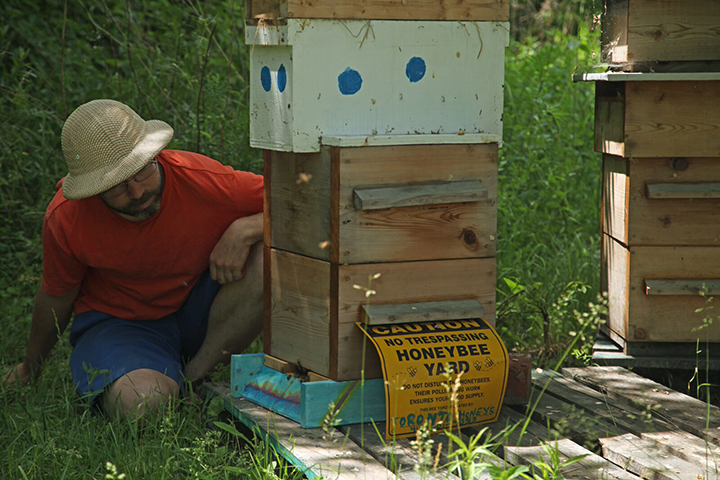
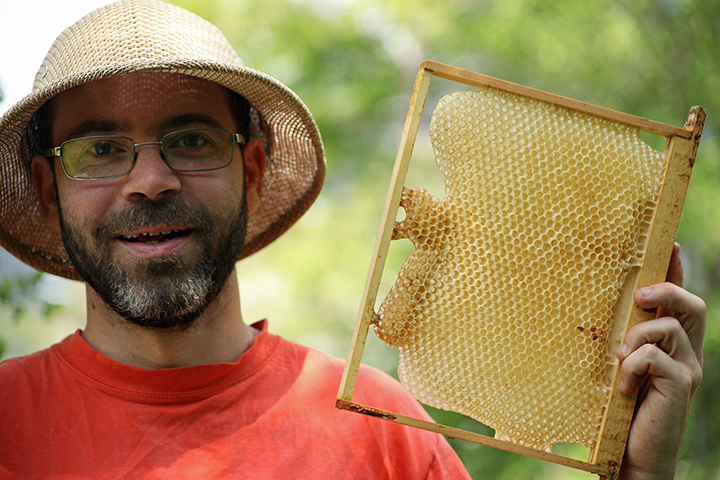



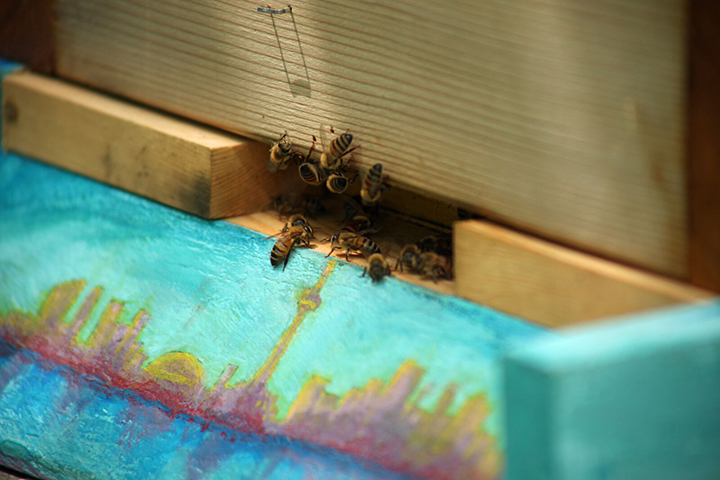

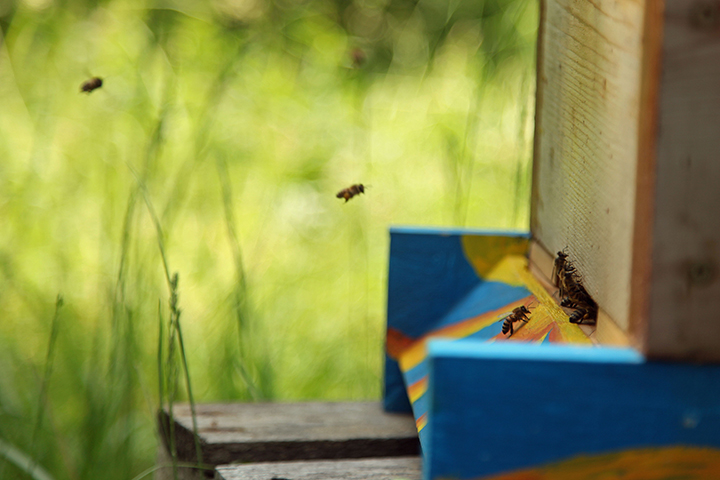

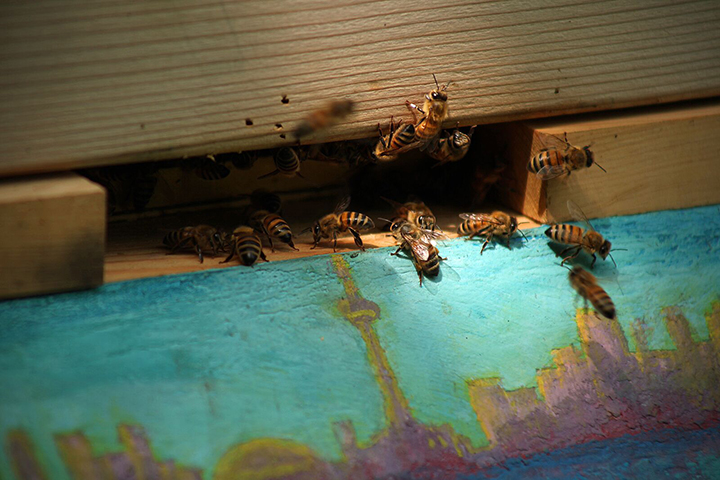
Comments